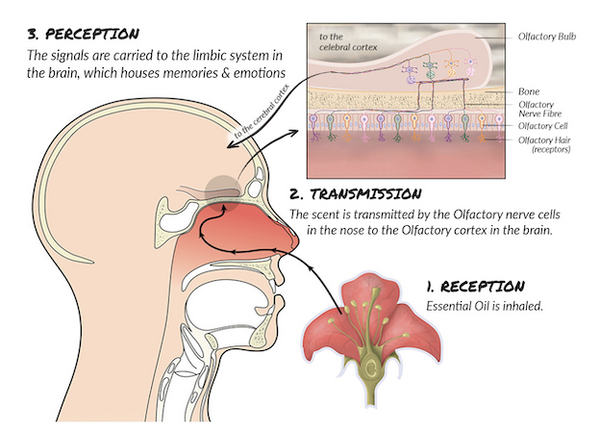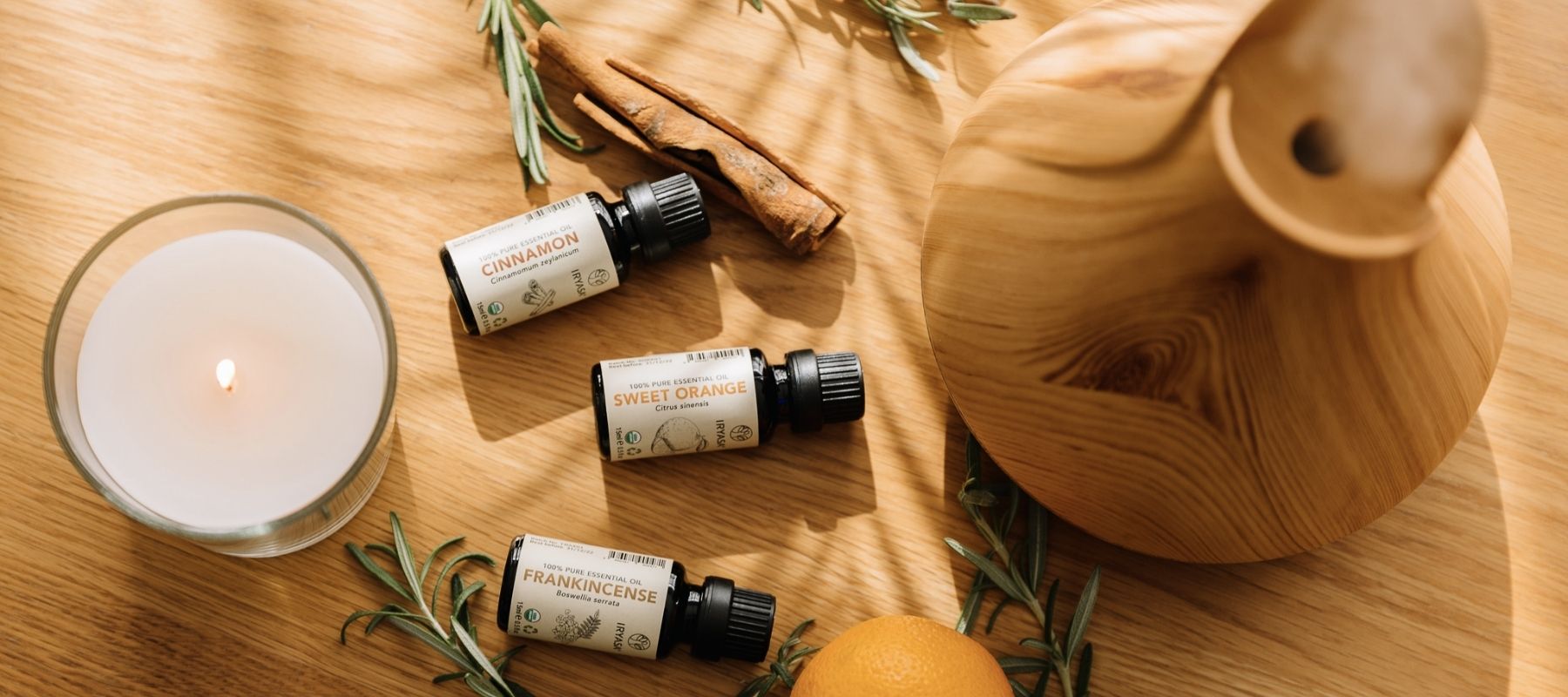Of our five senses, we often don’t acknowledge the power of the sense of smell. We all dream about how a moist slice of chocolate cake would taste, or the way soft cashmere feels beneath our fingers. But how often do we think about smell — and, more specifically, the science of smell and its effects on our mood and emotions?
We’ve all undeniably experienced the power of smell. Many of us have certain scents that bring us back in time, reminding us of a particular place or person. The smell of freshly baked cookies may bring you back to spending summer holidays at your Grandmother’s house, while a hint of jasmine in the air could remind you of an old lover.
You may have wondered how this phenomenon occurs. How is our brain capable of associating memories with smells? Why do certain scents affect our moods in different ways? And how is the practice of aromatherapy connected to this science?
If these questions are burning in your mind, read on to discover the science of smell and the many theories and studies that underpin aromatherapy with essential oils.
The science of smell
“For the sense of smell, almost more than any other, has the power to recall memories and it is a pity that we use it so little.” – Rachel Carson
Our sense of smell is incredibly important. From the minute we are born, babies can be calmed by scents they recognize from the womb. As we grow, our sense of smell only gets stronger - recent studies have shown that humans can tell a trillion different odors apart, and that the long-held belief that our sense of smell is inferior to animals is a total myth!
We rely on our sense of smell every single day. An unpleasant odor sends us a signal that there may be something in our environment that needs to be removed or may even warn us of potential dangers. A flowery scent may stir up certain romantic feelings or calm us at the end of a long, stressful day. But it begs the question — how does our sense of smell work?
Here we explain the science of smell in the most simplified way we know. If you’re looking for a more advanced explanation, this explanation of how smell works may help.

Odorant (smell) signals pass from our nose up to our brains through the human olfactory system. In this system, scents are picked up by odorant receptors on olfactory sensory neurons in the upper part of our nose. A signal is generated there, in the olfactory epithelium of our nose, and sent as information to our brain.
The region of our brain that first receives this information is the olfactory bulb, which then passes information about the smell to the olfactory cortex, stimulating our brain’s limbic system.
Interestingly, our limbic system is the centre in the brain that processes smells and is alsowhere our brain processes our emotions, moods and behaviours. The hippocampus, also a part of the limbic system, is involved in the formation of new memories.
This extensive interconnectivity may explain why smells are often associated with memories or emotions: because they’re using the same parts of our brain, this network of nerve connections enables smells to trigger emotions or memories.
The result is that scents can have positive effects on our mood, stress levels, sleep, self-confidence and more. Being mindful of the scents present in our environment and making an intentional effort to enhance them may also help us improve our health and well-being.
What is aromatherapy?
Aromatherapy is the practice of inhaling scents, in particular from essential oils and plant extracts, for the benefits they may have on our physical and psychological well-being.
Essential oils are highly concentrated versions of natural, volatile, aromatic compounds found in different parts of the plant, including seeds, leaves, roots, flowers, resin and also the bark.
Understanding the science of smell shows us that scents may have a significant impact on our moods and emotions. Aromatherapy taps into this science by using different scents to help us relax, energise, de-stress and more.
An easy way to experience aromatherapy at home is to use an essential oil diffuser. These diffusers blend essential oils with water, dispersing the essential oils in the air as a fine vapour so they can be easily inhaled. It’s also a wonderful, healthy, chemical-free way to make your home smell fantastic!
Does aromatherapy work?
Aromatherapy is based on the science of smell: that certain scents can trigger different emotions and moods. Using essential oils has been shown to activate the limbic system in our brains, so there is reason to believe that it can affect our moods, emotions and even our memories.
Here are some studies that support the science of aromatherapy and the potential of essential oils:
- Lavender essential oil may help you sleep and decrease your heart rate
- Peppermint essential oil may boost your energy, enhance memory and alertness, and even contribute to better exercise performance
- Rosemary essential oil may help enhance memory
- Sweet Orange essential oil may help reduce anxiety
It’s important to keep in mind, however, that essential oils should never be used as a replacement for any medicine prescribed by a physician as there is insufficient evidence to suggest aromatherapy can treat specific health conditions.
Discover what works for you
Not all scents work the same way for everyone. For example, the smell of peppermint oil has been shown to help boost your energy and improve your memory; but if you spent your childhood drinking cups of peppermint tea to relax before bed, the smell of peppermint may help relax you instead.
We recommend trying popular essential oil blends in your aromatherapy diffuser to see which blends work best for you. You can browse our selection of essential oils here. We suggest using three to five drops of essential oils per 100mL of water in your essential oils diffuser.
If you’ve seen positive effects from aromatherapy, let us know in the comments. We’d love to hear about your results!

















Leave a comment (all fields required)